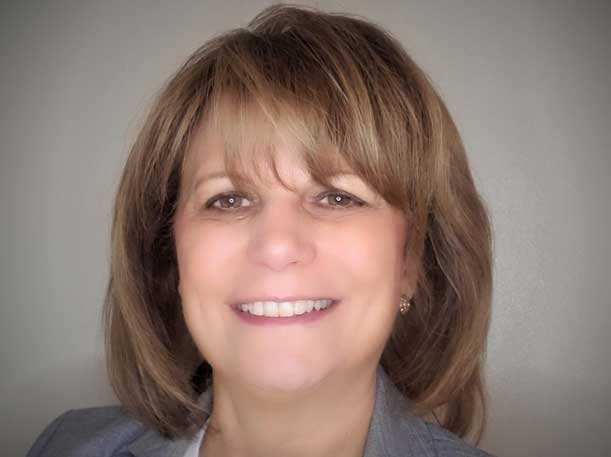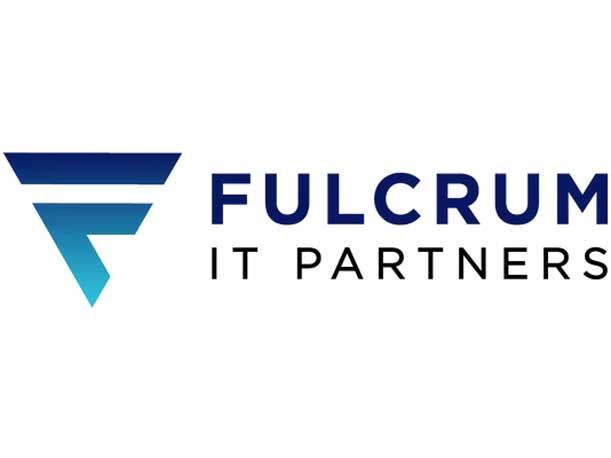Fulcrum IT Partners Exec: We’re Acquiring Partners To Offer A Fully-Managed Solution
‘We are looking to acquire partners that have strong leadership in place today because we leave that leadership in place,’ says Kelly Carter, chief strategy officer at Fulcrum. ‘We’re looking for an owner who’s looking to leverage a larger organization to grow, but they still will remain involved in the business. Their leadership will remain involved.’

Fulcrum IT Partners, a Canadian company that owns a host of MSPs, has big plans to offer its customers a fully-managed solution and has been on an acquisition streak to get there.
“We are looking to acquire partners that have strong leadership in place today because we leave that leadership in place,” Kelly Carter, chief strategy officer for Fulcrum, told CRN. “We’re looking for an owner who’s looking to leverage a larger organization to grow, but they still will remain involved in the business. Their leadership will remain involved.”
Toronto-based Fulcrum is also expected to hit $1 billion in revenue by the end of 2023. The momentum is in part due to its latest acquisition streak over the past two years. In March and April, Fulcrum acquired Ohio-based Advizex and London-based MSP Viadex, respectively. In 2022 it added Canadian cybersecurity firm iOn United and Prodec Networks, and in 2021 it added UK reseller Pure Technology Group.
“The key is bringing in the right partner companies so that we can offer that full solution experience to our customers,” she said. “We’re bringing in all these acquired companies that have an end user customer, and maybe in the past they could only offer a partial solution to that customer. Now they’ll have all these other Fulcrum partner companies that they can leverage to truly offer that full solution to their end customer.”
To help with M&A deals and reach its global goals, Fulcrum brought on Carter, who assumed her role in March. Carter spent more than 25 years at Irvine, Calif.-based distributor Ingram Micro in multiple roles including CFO for Ingram Micro Canada, vice president of financial solutions and executive director of financial and credit solutions.
“It’s integrating all these different expertise to offer that fully managed solution and full as-a-service solution with the right security protections in place,” she said of Fulcrum’s M&A strategy.
Check out CRN’s interview with Carter on her new role and initiatives, Fulcrum’s M&A strategy and why the MSP is better than the competition.

How will you use what you’ve learned at Ingram Micro in your new role at Fulcrum?
In all those years at Ingram, many of those years I was working in the channel with partners and leading our credit organization and then built out all of the various financial solutions that were being utilized at Ingram. Not only did that give me a good sense in how partners are financing technology, and how that’s been changing over time, but also gave me a great understanding of the channel and other MSPs or resellers. I have a very strong understanding of those businesses and how they work with the vendors and the distributors. So bringing that to Fulcrum, being on the other side of it and being able to now leverage the distributors and the vendors in a way that I think will help propel our business and bringing in the right financial solutions is invaluable.
What attracted you to Fulcrum?
I had actually worked with one of the founders of Fulcrum [Gordon McMillian] very closely for the last several years. He had been involved in both Pivot and then Converge Technologies so I’ve worked very closely with him and helping grow those businesses. And I got to know Shaun Maine who was involved in Converge [Shane Maine, Shaun’s twin brother, is CEO of Fulcrum]. I enjoyed watching how they navigated growing these businesses and I had a lot of respect for what they’ve done. We started talking about this opportunity, and although it was hard to leave Ingram after all that time it’s nice to make a change at this point in my career and see it from the other side.

In your role, you will be helping Fulcrum with their land and expand growth plan. Tell me more about that.
I’m involved in looking at the right acquisitions to bring into the Fulcrum group of companies so that we have the expertise in different areas. It’s about fulfilling our strategy, as well as looking at the financing of those acquisitions, vendor relationships and distributor relationships as well. It’s leveraging what we can from our vendors and our distributors to accelerate our growth strategy.
What are some of the initiatives you have for the first six to 12 months?
I think that the acquisition strategy is key, so identifying those companies that we want to bring into the fold as well as the financing around those companies. Not only are we making the acquisition, but how do we bring best practices into those companies for using financial solutions to maximize their working capital and cash flow. That will allow us to keep investing in the business and accelerating the growth.

Can you dive into the company's M&A strategy going forward?
We’re looking for companies that we can bring in that will be complementary to our overall strategies, so bringing in an expertise we don’t have today or bringing in maybe an expertise in a different region or a different vertical. The goal of this strategy is that you’ve got partner companies that can leverage each other to deliver full solutions to the customers. That’s really what it’s all about is delivering that full multivendor outcome to our end customers versus selling product or selling a solution. It’s really getting in there, advising and delivering that full outcome that they’re looking for.
Why is Viadex a good fit for Fulcrum?
Viadex is interesting because they’re already involved in many of the technologies we’re involved in, but they have this global footprint. They’ve been able to eliminate a lot of the barriers to doing a global rollout, and that’s been a challenge in the industry for many, many years. Bringing them into the fold is going to allow us to much more seamlessly have a global experience for our partners that are positioned globally.

What is the biggest ask from your customers right now? What are you trying to solve for them?
Top of mind is always security and having a very secured environment. One of the things that we’re very focused on is as we’re delivering these as-a-service outcomes, security is built into that entire security strategy and multi-vendor security strategies. You may have one vendor that’s more of an expert in one aspect and another vendor that’s an expert in endpoint or firewall, for instance. It’s having that multi-vendor solution that we can go in and have the expertise to both put in place what they need and manage it and monitor it over time. We’re also tightly tied in with a company that’s looking at cyber warranty and cyber risk transfer options and we’re going to be able to build that into all of our solutions.
What do you believe makes Fulcrum unique and different than the competition?
I guess it depends on how you define the competition There’s kind of the vintage traditional reseller, the progressive that was involved in hybrid IT bringing in some cloud, and then transformative which is really looking at that full as-a-service solutions and being that outsourced IT partner. That’s where we see ourselves, is in that transformative category. I think how we differentiate is having that expertise that’s so broad that we can offer that full solution. That’s tricky for a lot of companies to be able to have that expertise in so many different areas that they can offer that true fully managed solution. We’re doing it in partnership with the vendors, so vendors are offering more unique as-a-service solution consumption models.
One of the partner companies we bought Advizex, is one of the strongest in offering HPE Greenlake. Now we can bring that to all of our companies and they can go out there and offer it. We have companies where their primary expertise is that cybersecurity portion, so they can integrate that in. It’s integrating all these different expertise to offer that fully managed solution and full as-a-service solution with the right security protections in place.

What else can we expect to see from Fulcrum this year?
I think you’ll see a lot in terms of innovative solutions that aren’t in the market. What we’re doing with consumption, it’s already happening with Advizex and now bringing in these other partner companies, you’re going to see us have a strong emphasis on consumption model, cloud and as-a-service solutions from the vendors and some really unique offerings within cybersecurity. Cybersecurity insurance has been something that’s been very difficult to access and cyber warranties have been something that’s been very difficult for companies in the mid-market space to access. It’s also very expensive. With the partnerships we are developing within that industry, we as the MSP can help them get access and reduce costs. We can show, and we have data that will show, the true security posture that they have in place and how we’re monitoring it on a regular basis. We can provide data regarding any breaches so it allows for that coverage to be much more accessible and inexpensive.
Data is a big piece of Fulcrum’s strategy for driving outcomes. Can you talk more about that?
Having data gives you information that maybe hasn’t been available before to an end customer to show them where they need to implement certain things within their business. It also allows us to work more effectively with vendors and distributors when we have data that shows what’s actually happening in those end customer businesses. The companies that we’re looking to acquire in addition to looking for those particular skill sets, we’re looking for companies who are offering that into their customer base. So they have a mid-market customer base who has reached that point where they’re looking for that full managed solution in their business.